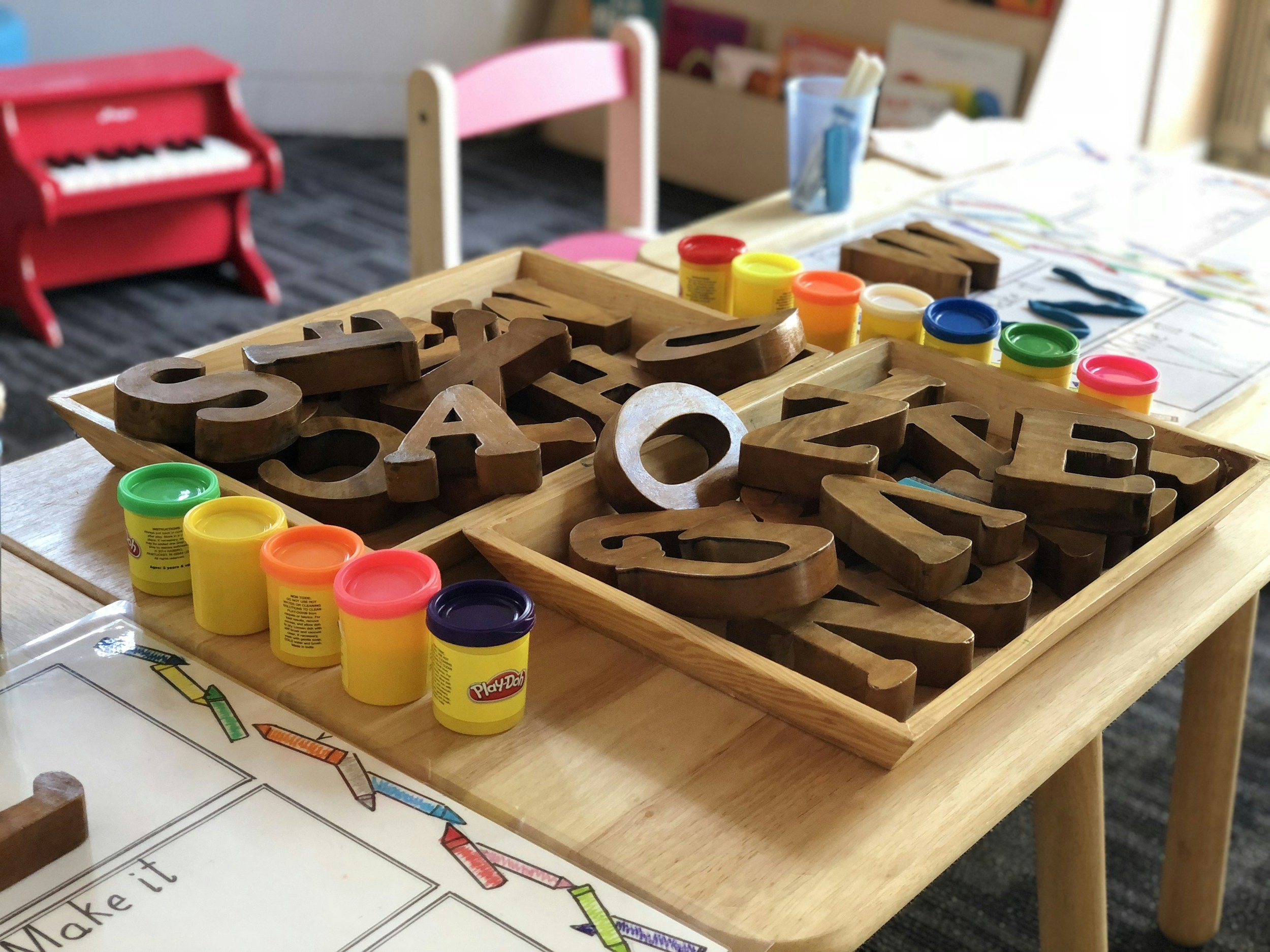Preparing for Curriculum Change: How Data Can Smooth the Transition
Preparing for Curriculum Change: How Data Helps Schools Adapt
The Department for Education's recent Curriculum and Assessment Review makes one thing clear: while England's knowledge-rich curriculum has driven improved outcomes, the system still isn't working equally well for all students. With persistent attainment gaps and evolving workplace needs, schools face the dual challenge of maintaining high standards while adapting to coming changes.
At its heart, the review calls for:
- More inclusive curriculum design
- Better support for disadvantaged learners and those with SEND
- Smoother transitions between key stages
- Greater flexibility for teachers to tailor content
For school leaders, this impending evolution (thankfully not revolution) raises practical questions: How will we track the impact of new approaches? What baseline data should we capture now? How can we personalise learning at scale?
Ready to explore how data-driven insights can smooth your transition to curriculum changes?
Three Data-Driven Solutions
Understanding the core tenets of the curriculum review and the challenges they present for schools is the first crucial step. To navigate these complexities and turn potential hurdles into opportunities for growth, a strategic, data-informed approach is essential. The following sections will delve into three key areas where leveraging data can provide powerful solutions, enabling schools to proactively address the demands of curriculum change and ultimately foster improved outcomes for all students.
1. Uncovering Hidden Barriers to Learning: Early Identification of At-Risk Students
The Department for Education's recent Curriculum and Assessment Review rightly underscores the persistent and deeply concerning attainment gaps affecting disadvantaged students and those with Special Educational Needs and Disabilities (SEND). A critical challenge lies in the fact that traditional assessment data, while valuable, often becomes available too late in the academic cycle to facilitate timely and impactful interventions. This delay can mean that struggling learners miss crucial early support, hindering their progress and widening existing disparities.
How Deesha Empowers Early Intervention:
Deesha's powerful analytical capabilities provide schools with a proactive approach to identifying students facing potential barriers to learning:
Early Warning System through Data Correlation: Deesha goes beyond isolated data points by intelligently correlating patterns across attendance records, behaviour logs, and assessment outcomes. This holistic view allows educators to flag students at risk much earlier than relying solely on delayed assessment results. For example, a pattern of increasing absences coupled with declining engagement in specific subjects could indicate a student in need of support long before a formal assessment reveals underperformance. This early identification enables swift and targeted intervention strategies.
Personalised Progress Tracking Against Multiple Benchmarks: To gain a true understanding of individual student progress, Deesha tracks performance not only against broad age-related expectations but also against each student's unique individual baselines. This nuanced approach acknowledges that learners start at different points and progress at varying rates. By monitoring growth relative to their starting point, educators can identify students who may be falling behind their own potential, even if they are technically meeting age-related expectations. This detailed tracking provides a more accurate and equitable picture of learning trajectories.
Automated Identification of Cohort-Level Disparities: Deesha's data intelligence platform automatically surfaces significant cohort-level disparities, providing school leaders with clear insights into systemic inequalities. For instance, the system can readily highlight instances where Free School Meal (FSM) eligible pupils are consistently underperforming in specific curriculum domains, such as mathematics or literacy. This automated analysis eliminates the time-consuming manual effort required to identify such trends and empowers leadership to implement targeted strategies and allocate resources effectively to address these identified gaps at a school-wide level.
By leveraging Deesha's ability to connect disparate data points and provide timely, granular insights, schools can move from a reactive approach to a proactive one, identifying and addressing hidden barriers to learning before they significantly impact student outcomes. This early intervention is crucial in creating a more inclusive and equitable educational environment for all learners, particularly those most vulnerable to falling behind.
Want to delve deeper into how Deesha's learning modules can provide granular insights into student progress? Explore Our Blog on the Learning Module:
2. Achieving Mastery with Balanced Curriculum Coverage: Data-Informed Flexibility
A significant challenge reported by teachers is the inherent tension between the need to comprehensively cover the mandated curriculum content and the crucial goal of ensuring deep and lasting mastery of key concepts by all students. While the curriculum review signals a welcome move towards greater flexibility for teachers to tailor content and pace, schools require robust evidence and insights to effectively leverage this autonomy and make informed decisions about curriculum implementation.
How Deesha Facilitates Data-Driven Curriculum Adaptation:
Deesha provides powerful tools to help schools navigate this balance and make the most of increased curriculum flexibility:
Visualising Curriculum Mastery Across Year Groups: Deesha offers intuitive visualisations that clearly display the levels of mastery achieved in different curriculum areas across all year groups. This allows school leaders and teachers to quickly identify subjects or specific topics where student understanding is consistently strong or, conversely, where significant weaknesses persist. This bird's-eye view enables targeted curriculum reviews and adjustments to ensure a coherent and effective learning progression throughout the school.
Pinpointing Curriculum "Pinch Points" for Targeted Intervention: Deesha goes beyond broad overviews by helping schools identify specific "pinch points" within the curriculum – those particular topics or concepts where students commonly struggle. For example, data might reveal that Year 5 fractions consistently present a significant challenge. This granular insight allows for focused discussions about pacing adjustments, teaching methodologies, and resource allocation to address these specific areas of difficulty proactively and improve student outcomes.
Tracking the Impact of Curriculum Innovations and Interventions: As schools trial new teaching approaches or implement targeted interventions aimed at improving mastery, Deesha provides the capability to track the impact of these initiatives on both subject-specific knowledge and broader cross-curricular skills. By analysing progress data before and after the implementation of a trial, schools can gather concrete evidence on what strategies are most effective in promoting deeper learning and informing future curriculum decisions. This data-driven evaluation ensures that changes are based on demonstrable impact rather than anecdotal evidence.
Schools are empowered by Deesha to go beyond a solely coverage-based approach to curriculum delivery by offering clear visualisations of curriculum mastery, indicating specific areas that require attention, and facilitating the tracking of intervention efficacy. Teachers can modify their instruction and pace to guarantee true mastery for a larger proportion of students thanks to this data-informed flexibility, which eventually improves learning outcomes and makes learning more efficient.
3. Facilitating Seamless Transitions Across Key Educational Stages: Bridging the Gaps
The curriculum review rightly highlights existing concerns surrounding the smoothness of transitions between critical educational stages, particularly the progression from Key Stage 2 to Key Stage 3 and the pathways students take post-16. Ensuring these transitions are seamless and supportive is crucial for maintaining student momentum, preventing learning loss, and setting students up for future success.
How Deesha Provides Data-Driven Transition Support:
Deesha offers powerful analytical tools to help schools create more effective and supportive transition processes:
Creating Unified Progress Views Across Key Stages: Deesha enables schools to establish unified views of student progress that span across different key stages. For example, the platform can facilitate the mapping of Key Stage 2 writing assessment criteria to the skills assessed in Key Stage 3 starter tasks. This allows teachers in both key stages to have a clearer understanding of students' prior learning and identify areas where targeted support might be needed as they move to the next phase of their education. This continuity of data provides a more holistic picture of student development and learning trajectories.
Identifying Students at Risk During Transition Years: Transition periods can be particularly challenging for some students, and Deesha helps schools proactively identify those at the highest risk of falling through the gaps during these crucial times. By analysing trends in academic performance, attendance, behaviour, and engagement in the lead-up to and during transition years, Deesha can flag students who may require additional support, mentoring, or differentiated instruction to ensure a successful adjustment to the new educational environment. This early identification allows for targeted interventions to mitigate potential difficulties.
Deesha gives schools the ability to design more knowledgeable and encouraging transition procedures by giving them a unified picture of students' achievement across important phases, identifying kids who are at risk during times of transition, and monitoring post-16 results. By optimising their potential and putting them on a favourable course for future academic and professional courses, this data-driven strategy helps to guarantee that all students have more seamless and successful transitions.
Ready to see how Deesha can streamline your key stage transitions and ensure no student falls through the gaps?
Proactive Steps for Curriculum Evolution: Data-Informed Preparation
As schools eagerly await the final recommendations from the Department for Education's Curriculum and Assessment Review, there are concrete steps that leaders can take now to ensure a smooth and effective transition. Building a strong foundation based on data-driven insights will be crucial for navigating the upcoming changes and maximising positive impact on student learning.
Here are three key areas where schools can focus their efforts:
Comprehensive Audit of Current Data Practices: It's imperative for schools to critically audit their existing data collection and management processes. This involves ensuring that you are currently capturing the right baseline metrics that will be essential for evaluating the impact of any curriculum adjustments. Consider what data points will allow you to track student progress under the new framework and identify areas for future improvement. This proactive data audit will lay the groundwork for informed decision-making.
Strategic Review of Assessment Timelines and Alignment: Schools should proactively review their internal assessment timelines and frameworks to ensure alignment with the anticipated changes outlined in the curriculum review. Consider how your current assessment schedule will need to adapt to the new curriculum and assessment approaches. Planning these adjustments in advance will minimise disruption and ensure a coherent approach to monitoring student learning throughout the transition period.
Empowering Teacher Judgment with Integrated Data Insights: The review emphasises teacher flexibility, and data can be a powerful tool to support informed pedagogical decisions. Schools should focus on empowering teacher judgment by providing them with easily accessible and understandable data, combined with opportunities to share their valuable qualitative insights. By triangulating quantitative data with teachers' professional observations and understanding of their students, schools can gain a richer and more nuanced picture of learning, leading to more effective and tailored teaching strategies.
Platforms like Deesha are already providing significant support to partner schools in preparing for these changes:
Significant Reduction in Data Collation Time with Enhanced Insight Quality: Deesha streamlines data management, enabling schools to reduce the time spent on manual data collation by up to 86%. This freed-up time allows educators to focus on analysing the data and generating higher-quality insights into student progress and curriculum effectiveness.
Proactive Modelling of Curriculum Adjustment Impact: Deesha's analytical capabilities allow schools to model the potential impact of proposed curriculum adjustments before full-scale implementation. This predictive analysis enables leaders to make more informed decisions, anticipate potential challenges, and optimise their approach to curriculum change.
Maintaining Clear Visibility of Student Progress During Transition: During periods of curriculum change, maintaining a clear understanding of individual student progress is paramount. Deesha provides continuous visibility into student performance, ensuring that no learner is overlooked and that targeted support can be provided as needed throughout the transition.
See Deesha in action and discover how it can streamline your curriculum change preparation.
Future-Proofing Your Curriculum: Leverage Data for Confident Evolution
The Department for Education's strategic phased implementation of the curriculum review acknowledges the significant capacity considerations for schools. This measured approach provides a crucial window of opportunity for proactive preparation. By establishing robust data foundations now, your school can move beyond simply reacting to change and instead confidently shape its future:
Empower Evidence-Based Evaluation of New Initiatives: Equip your leadership and teaching teams with the data infrastructure to rigorously evaluate the true impact of new curriculum initiatives. Go beyond anecdotal feedback and gain clear, quantifiable evidence of what's driving positive change for your students.
Accelerate Identification of Effective Practices: In a dynamic educational landscape, the ability to quickly discern what's working best is paramount. Robust data analytics will allow you to swiftly identify successful teaching strategies, curriculum adaptations, and interventions, enabling rapid scaling and dissemination of effective practices across your school or trust.
Strategic Resource Allocation for Maximum Impact: Make every pound count. Data-driven insights provide the clarity needed to allocate resources – time, funding, personnel – precisely where they will yield the greatest positive impact on student outcomes and address identified areas of need with precision.
Ultimately, navigating curriculum change shouldn't feel like uncharted territory. It's an opportunity to build upon your existing strengths, leveraging the rich information contained within your school's data to understand the unique needs and progress of your student community. By embracing a data-informed approach, you can ensure that curriculum evolution is not a disruptive upheaval, but a strategic and confident step towards a brighter future for every learner.
Take the first step towards a confident curriculum evolution. Book a personalised Deesha demo today!
Curious about other ways data can transform learning? Check out our blog for more insights on learning modules and beyond.




